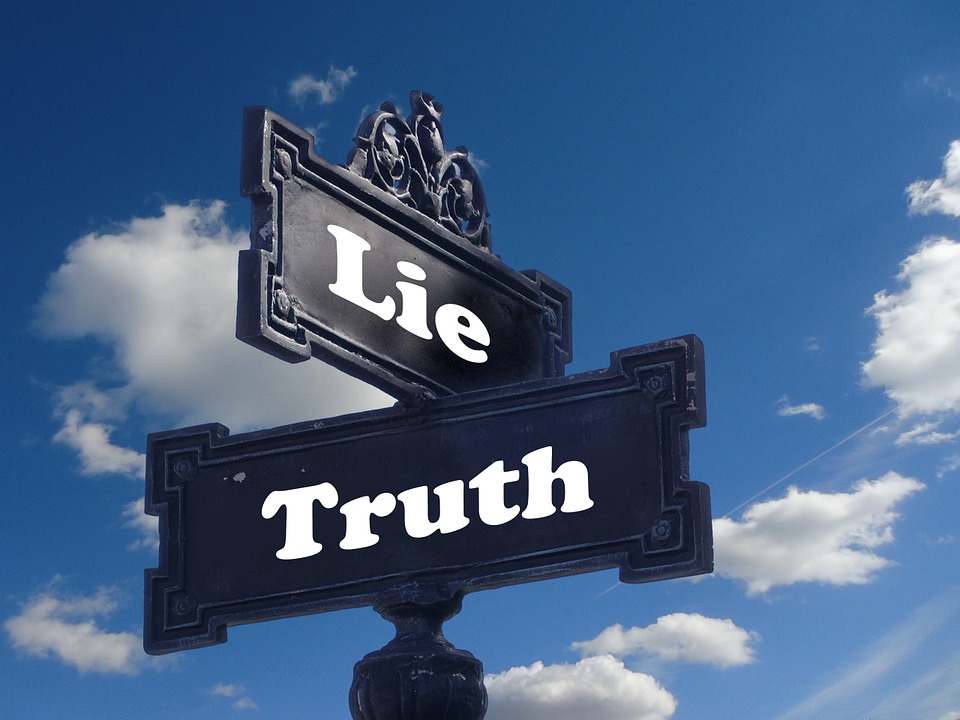
By Larry Magid
Posted in October and updated
In the words of Bernard Baruch, “Every man has a right to his own opinion, but no man has a right to be wrong in his facts.” He said that in 1950, but if he were alive today, he’d probably be saying it with even more urgency.
Unfortunately, we now live at a time of fake news. I see and hear false facts almost every day, from cable news pundits, politicians, so-called “news” sites and from some folks I follow on Twitter and Facebook.
Sometimes it’s a misinterpretation, like a politician claiming that “almost all the polls show that I won the debate,” only to find out that all but one of polls were opt-in Internet polls that are totally meaningless, while the only valid poll showed that his opponent won.
Others can be exaggerations or anecdotes that might be partially true or subject to interpretation. For example when someone tells you that crime is at an all-time high, you might be inclined to believe them, despite the fact that evidence from the Department of Justice and other sources shows that it’s not the case. One is especially likely to believe that if they themselves have witnessed or been victimized by a crime or if they have heard about a particularly gruesome crime. About a year ago, I wrote an article reporting that the vast majority of youth have neither cyberbullied others or been cyberbullied, and two people wrote that I was way underestimating the rate, because they each knew of a horrible case of cyberbullying, confusing severity with prevalence. I have no doubt that they were aware of a horrible case, but that doesn’t mean that it’s a common occurrence.
If you are out of work or underemployed, you might be inclined to believe a pundit who tells you that our economy is at an all-time low, even though unemployment is dramatically down over the past eight years while most (though not all) economic indicators are up. There is even an observation called the Dunning–Kruger Effect to explain why people believe information known by many to be untrue. “The scope of people’s ignorance is often invisible to them. This meta-ignorance (or ignorance of ignorance) arises because lack of expertise and knowledge often hides in the realm of the ‘unknown unknowns’ or is disguised by erroneous beliefs and background knowledge that only appear to be sufficient to conclude a right answer.”
Some mistaken “facts” are just plain lies and others are jokes — perhaps from comedic fake news sites like the Onion.
Recently, thousands of people liked, shared or commented on a Facebook posts that actress Betty White had died. At 94, it’s an easy rumor to believe, but it wasn’t true. A year ago, a fake news story proclaimed that “Actress Betty White, 93, Dyes Peacefully in Her Los Angeles Home,” but at least that site had the good sense to spell the word incorrectly. It was a joke news story about how she dyed her hair. She had indeed dyed, but she hadn’t died.

There are numerous other examples as I documented in a Forbes post called How To Avoid Spreading Hoaxes On Social Media. At the time, Facebook was full of posts claiming that Mark Zuckerberg was going to charge people $5.99 to protect their privacy and that Bill Gates would give you $5,000 if you shared a link. A lot of people shared those links.
The 2016 presidential campaign has seen countless examples of false information, which keeps fact checkers from Politifact and other organizations very busy. The Washington Post Fact Checker has even come up with a untruthfulness scale, from one (“shading of the facts”) to four (“Whoppers”) “Pinocchios,” depending upon the severity of the untruth.
You are what you share
I’m quite certain that we will never put an end to inaccurate statements, but just because others are lying or simply incorrect doesn’t give the rest of us license to pass it on. If you’re sharing a lie, you’re lying, even if you don’t mean to lie or don’t know you’re lying. What you pass or endorse, by means of quoting, linking, sharing or liking, is now coming from you, even if you weren’t the one to originate it. Just as a journalist has a responsibility to vet what he or she says to make sure it’s true or at least attributable to a source, people in social media have a responsibility to at least make a reasonable effort to make sure that what they pass on is accurate, because others may believe it or may pass it on themselves and, if it’s not true, it reflects on your credibility because you said it. I’m reminded of what happened to my former CBS News colleague Dan Rather and his producer Mary Mapes who got into trouble for reporting on a story about President George W. Bush’s Air National Guard service based on memos that turned out to be fake. Neither Rather nor Mapes made up the story, but they did fail to authenticate the memos.
Easy to check
The good news is that it’s easy to check what you see online. There are a number of sites, most notably Snopes.com, that investigate urban legends and wild claims. Not everything Snopes writes about is false. Sometimes they validate a story as being true or partially true but, when I check posts that seem fishy, I often find that they are totally or mostly false. On the web, all you have to do to validate something that’s questionable is to highlight it, right-click and search via Google or Bing. Chances are that others have questioned it too and you may very well find validation or refutation on Snopes or another fact checking site.